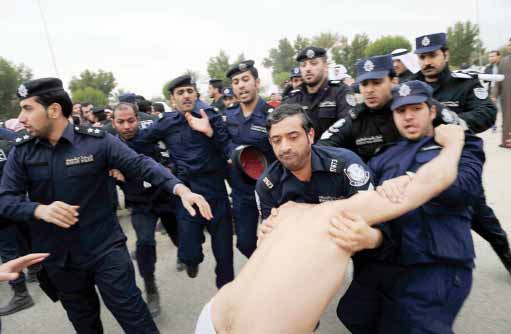Music has to reach everyone, said Ziad Rahbani at the press conference held to announce the second year of the Cairo Jazz Festival.
The Lebanese musician Rahbani, born to equally legendary parents Fairuz and Assi Rahbani, is the opening act of the festival which kicks off at Sawy Culture Wheel on March 11.
What Rahbani deems the purpose of music also sums up the purpose of the jazz fest in Egypt. Organizer Amro Salah told Daily News Egypt that this year’s line-up includes more bands, more workshops, and more venues and aims to create an awareness and respect for music, especially jazz, in Cairo.
Picking up from its successful inception last year, this year’s Cairo Jazz Fest is backed up by many sponsors: names like Semiramis Intercontinental, TE Data ADSL, Bank of Alexandria, Virgin Mega Stores and Nile FM have all blessed the event with their support.
The line-up this year includes more artists both from inside and outside Egypt.
Akram Sharqawy Group and El-Dor El-Awwal are the latest additions to the Egyptian outfits featured last year which comprised of Eftekesat, The Riff Band, and Fathy Salama and Sharkiat.
Foreign embassies have also brought bands to represent their countries including Japan’s Tokyo Freedom Soul fronted by star pianist Makoto Kuriya.
Austria’s Merry Poppins Band, fusing Balkan styles, jazz, hip hop and reggae, is another highlight of the eclectic line-up.
A different kind of blending is offered in the electronic and acoustic mix of the French band Abraxas Projekt.
Royal Crown Revue, an American band premiering on Friday, has performed alongside musical greats such as Kiss’ Gene Simmons and Bette Midler. Their number “Hey Pachuco! was part of the soundtrack of the movie “The Mask starring Jim Carrey and many other motion pictures, television shows and commercials.
The four-piece brass band Talking Horns and Dutch group Tarhana showcasing Anatolian melodies are also slated among this year’s performers.
Rahbani as well as two other artists, great Egyptian composer Omar Khairat and Charles Benevant, will be honored at the festival with special awards.
The true honor of making music was in the warmth and attention received from people, said Rahbani. In fact, the musician was reluctant to have an award bestowed on him, Mohamed Sawy, director of the Culture Wheel, told Daily News Egypt.
The first time Rahbani played jazz was at a concert at the American University in Beirut during the Civil War in 1985. “We didn’t know jazz then, said Rahbani, “Jazz is everything that people participate in, and that comes from the people.
In order to allow people in Egypt to interact with jazz, workshops this year – on drums, stage performance, and piano – will include jam sessions with young musicians, especially on weekends, allowing for greater attendance.
This year telife.com will also relay 10 minutes of the festival online every day, giving more audiences access to the music. Besides Cairo Jazz Club, this year’s outside venues will also include Semiramis Intercontinental’s Rithmo Club as well as Boss Café in Maadi.
Manager Maged Makram said one of the difficulties of financing such an event involved knowing that jazz is not as popular in Egypt, which is accustomed to music accompanied by tabla and reqq (oriental drums and tambourine).
Jazz does not need a belly dancer or tabla to sell itself as Oriental, said Rahbani. What the Rahbani band are doing is more than folklore music. The musician also recollected his work with his mother Fairuz for whom he composed as well. A new CD of Fairuz’s music will be distributed this year, said Rahbani.
Asked about his political inclinations, Rahbani, the author of many political songs and a column for the Lebanese paper Al-Akhbar, said while the market usually influenced a musician’s work, he “never thought of the market.
Inquired why it was only now that he had first visited Egypt, Rahbani said there had been an offer in 1989 but the development of the plans fell through. The musician was also reminded that popular Egyptian poet Ahmed Fouad Negm once said that Rahbani should be offered an Egyptian nationality, to which the artist had responded that at heart, he was Egyptian.
“I am Egyptian because of the culture, said Rahbani, “We share the same stories and music; even our humor is influenced by Egypt.
While jazz and its various permutations may take a while to seep into rooms where the tabla has always stolen the beat, the Cairo Jazz Festival is already set to a promising start by bringing the likes of Rahbani to Egypt.
For more information, visit http://www.cairojazzfest.com.
